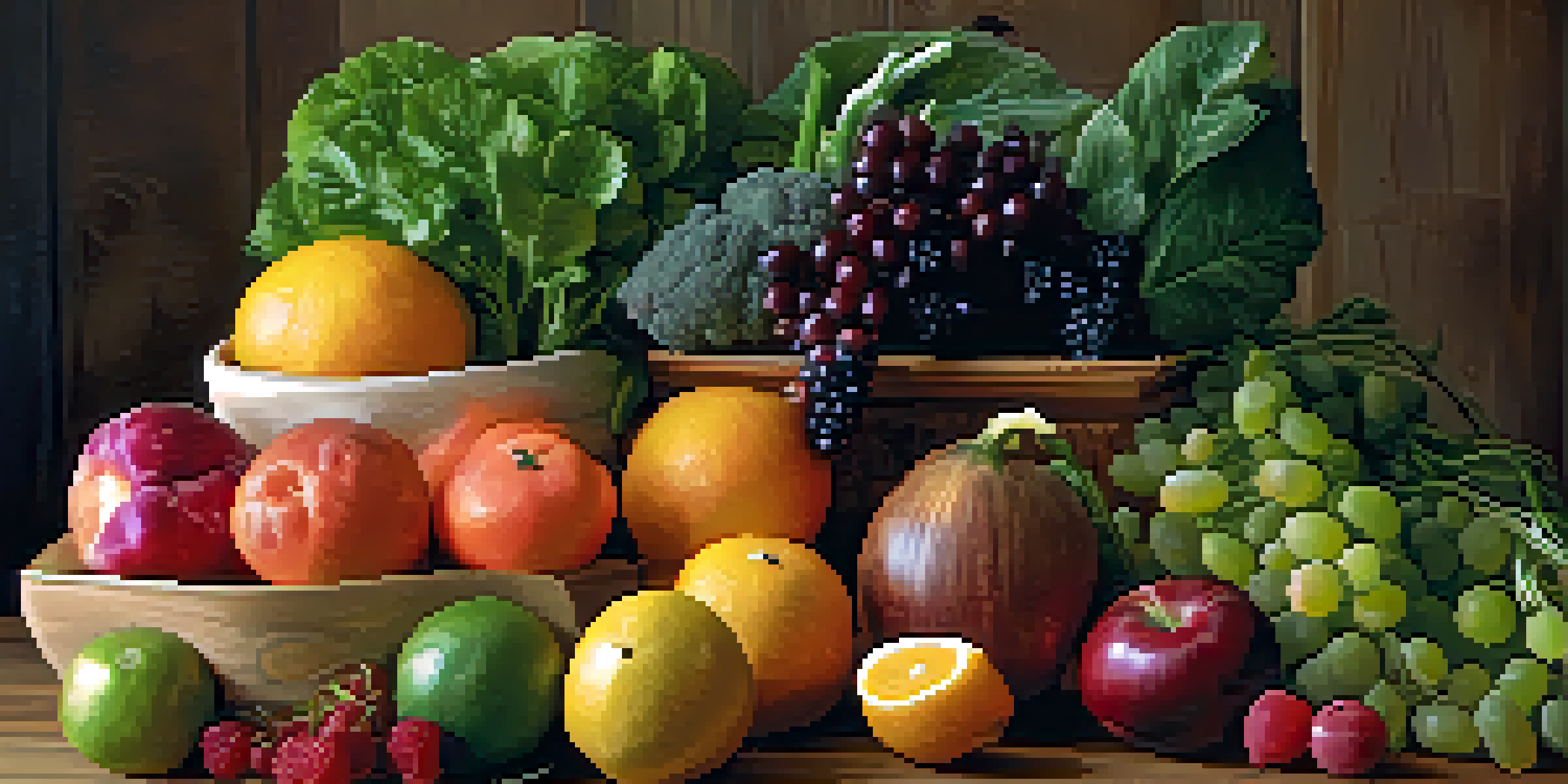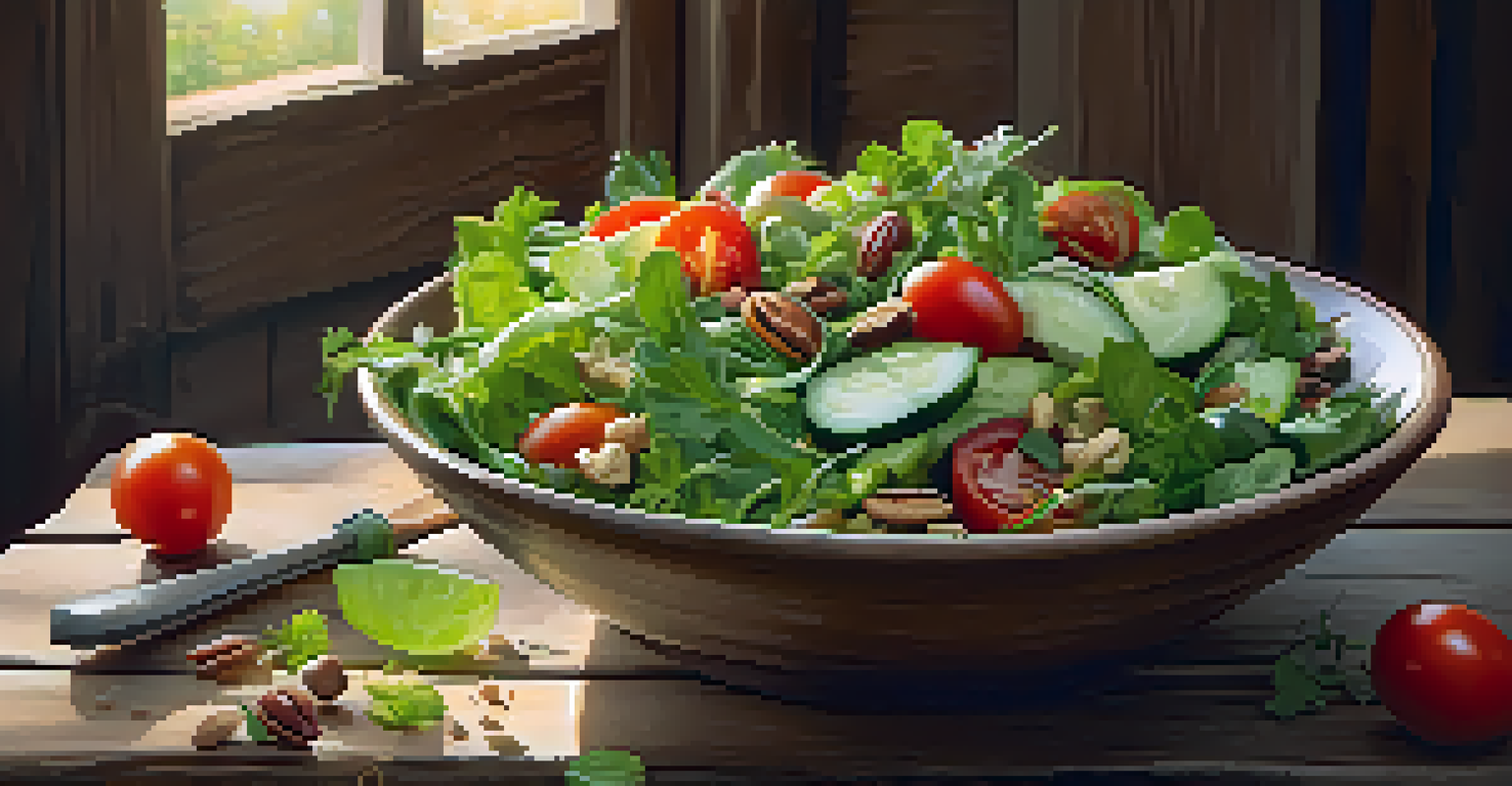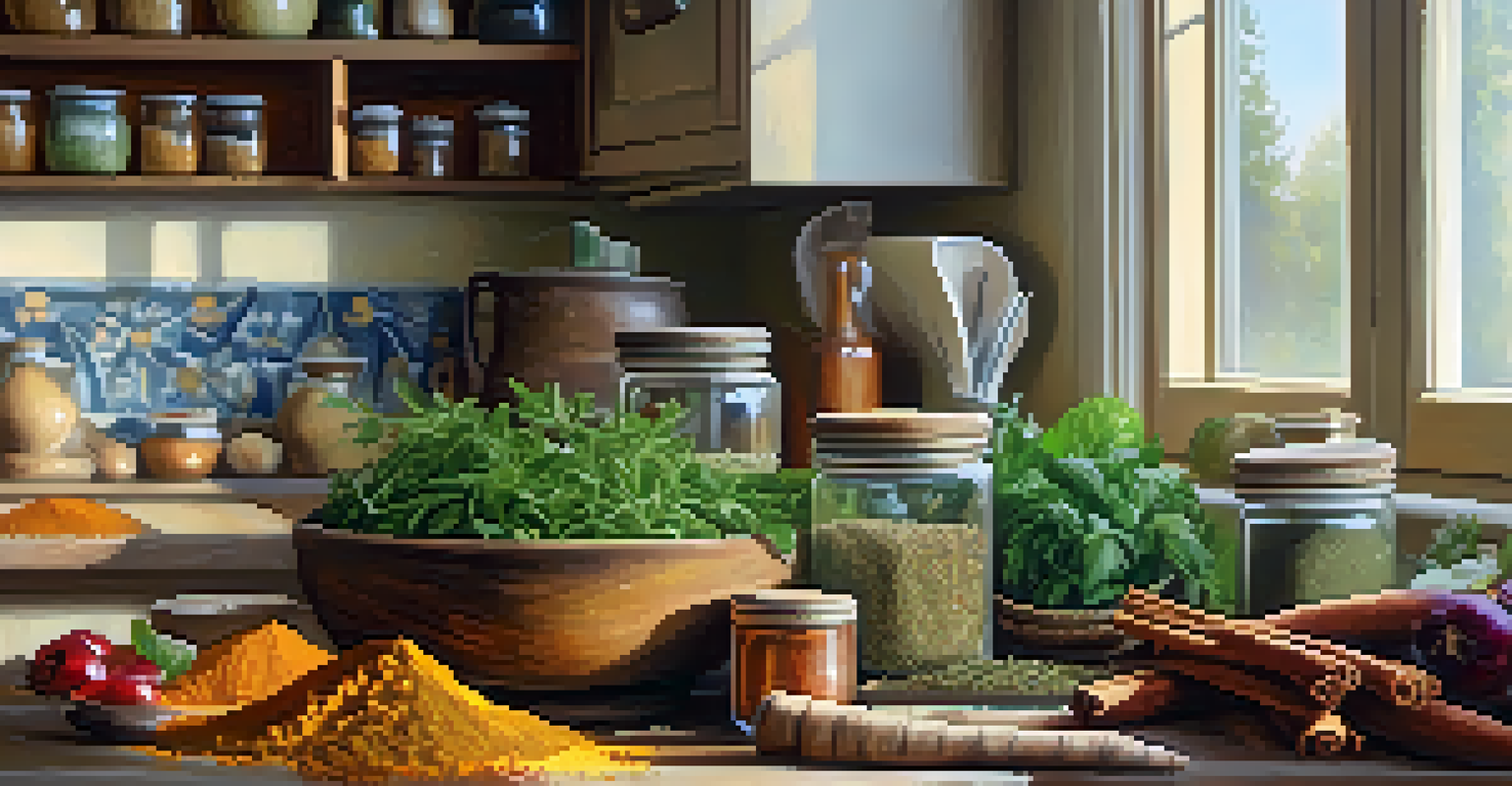The Role of Antioxidants in Vegetarian Diets and Aging

What Are Antioxidants and Their Importance?
Antioxidants are compounds that help neutralize harmful free radicals in the body. Free radicals can cause oxidative stress, leading to cell damage and aging over time. By incorporating antioxidants into your diet, you can support overall health and potentially slow down the aging process.
The greatest wealth is health.
In vegetarian diets, antioxidants play a crucial role because plant-based foods are rich in these beneficial compounds. Fruits, vegetables, nuts, and whole grains are excellent sources of antioxidants, making them staples in a vegetarian lifestyle. This abundance allows vegetarians to harness the power of antioxidants more effectively than some other diets.
Understanding the importance of antioxidants can inspire individuals to make healthier food choices. This knowledge encourages people to explore diverse plant-based foods that offer a wealth of nutrients, not only promoting aging gracefully but also enhancing overall vitality.
The Connection Between Antioxidants and Aging
Aging is a natural process, but oxidative stress can accelerate its effects, leading to age-related diseases. Antioxidants combat oxidative stress by neutralizing free radicals, which are often produced during metabolism and exposure to environmental toxins. By doing so, they help protect our cells and maintain their function as we age.

Research suggests that a diet rich in antioxidants may reduce the risk of chronic diseases associated with aging, such as heart disease and cognitive decline. For example, studies have shown that individuals with higher antioxidant intake tend to have better cardiovascular health and improved cognitive function. This connection highlights the importance of including antioxidant-rich foods in your diet.
Antioxidants Combat Aging Effects
Antioxidants help neutralize free radicals, reducing oxidative stress and supporting healthy aging.
Incorporating a variety of colorful fruits and vegetables into your meals can significantly boost your antioxidant intake. The pigments in these foods, often referred to as phytonutrients, not only enhance their appearance but also provide a host of health benefits that support aging gracefully.
Key Antioxidants Found in Vegetarian Foods
Some of the most powerful antioxidants include vitamins C and E, beta-carotene, and flavonoids. These are commonly found in a variety of vegetarian foods. For example, citrus fruits are rich in vitamin C, while nuts and seeds provide a healthy dose of vitamin E, both essential for combating oxidative stress.
Let food be thy medicine and medicine be thy food.
Additionally, colorful vegetables like carrots and sweet potatoes are excellent sources of beta-carotene, which is converted into vitamin A in the body. Flavonoids are abundant in berries, dark chocolate, and green tea, offering health benefits that extend beyond just antioxidant support. Incorporating these foods into your diet can help maximize your antioxidant intake.
Knowing which foods are rich in antioxidants can empower you to make healthier choices. By focusing on a diverse and colorful array of plant-based foods, you can significantly enhance your antioxidant levels and support your body’s ability to fight the effects of aging.
How to Incorporate More Antioxidants into Your Diet
Incorporating more antioxidants into your vegetarian diet can be both enjoyable and simple. Start by adding a variety of colorful fruits and vegetables to your meals, aiming for a 'rainbow plate.' This not only makes your meals visually appealing but also ensures a wide range of nutrients.
Consider snacking on nuts, seeds, or dark chocolate, which are not only delicious but also packed with antioxidants. Smoothies are another great way to boost your intake—blend leafy greens, berries, and a banana for a nutrient-rich drink that’s both tasty and satisfying.
Plant Foods Are Antioxidant Powerhouses
Vegetarian diets rich in colorful fruits and vegetables provide essential antioxidants like vitamins C and E.
Lastly, don’t forget about herbs and spices, which can also be rich in antioxidants. Adding turmeric, cinnamon, or oregano to your dishes can enhance flavor while delivering additional health benefits. With these tips, you can easily increase your antioxidant consumption and support your health as you age.
The Role of Lifestyle in Antioxidant Efficacy
While diet plays a significant role in antioxidant intake, lifestyle factors also influence their effectiveness. Regular exercise, for example, can enhance the body’s ability to utilize antioxidants effectively. Physical activity helps improve circulation, allowing antioxidants to reach cells more efficiently.
Moreover, managing stress is crucial, as chronic stress can lead to increased free radical production. Engaging in mindfulness practices, yoga, or meditation can help reduce stress levels, enabling your body to maintain a healthy balance of antioxidants.
Sleep is another important factor; quality sleep allows your body to repair and regenerate, optimizing antioxidant function. By adopting a holistic approach that includes a balanced diet, regular exercise, stress management, and adequate sleep, you can maximize the benefits of antioxidants in your life.
Antioxidants and Immune Function in Aging
As we age, our immune system tends to weaken, making us more susceptible to infections and illnesses. Antioxidants play a vital role in supporting immune function by protecting immune cells from oxidative stress. A strong immune system is crucial for healthy aging, and antioxidants help bolster your body's defenses.
Certain antioxidants, like vitamin C, are particularly known for their immune-boosting properties. Citrus fruits, bell peppers, and strawberries are excellent sources of this vitamin, making them essential additions to a vegetarian diet aimed at maintaining immune health.
Lifestyle Boosts Antioxidant Efficacy
Incorporating regular exercise, stress management, and quality sleep enhances the effectiveness of antioxidants in the body.
By prioritizing antioxidant-rich foods, you can give your immune system the support it needs to function optimally. This proactive approach can help reduce the risk of infections and illnesses, enhancing your overall quality of life as you age.
Conclusion: Embracing Antioxidants for Healthy Aging
In conclusion, antioxidants play a pivotal role in vegetarian diets and the aging process. By neutralizing free radicals, they protect our cells and reduce the risk of chronic diseases associated with aging. Embracing a diet rich in antioxidants not only supports healthy aging but also enhances overall well-being.
As you explore the many delicious and vibrant plant-based foods available, remember that each bite contributes to your health. Whether it’s a colorful salad, a refreshing smoothie, or a hearty vegetable stir-fry, the choices you make can significantly impact your antioxidant intake.

By prioritizing a balanced, antioxidant-rich vegetarian diet, you can empower yourself to age gracefully and live a vibrant, healthy life. So, let your plate be a canvas of colors and nutrients, celebrating the beauty of plant-based nutrition.